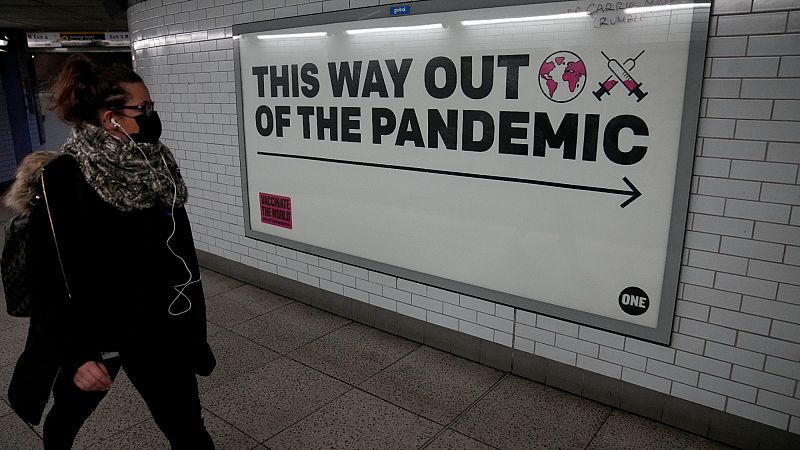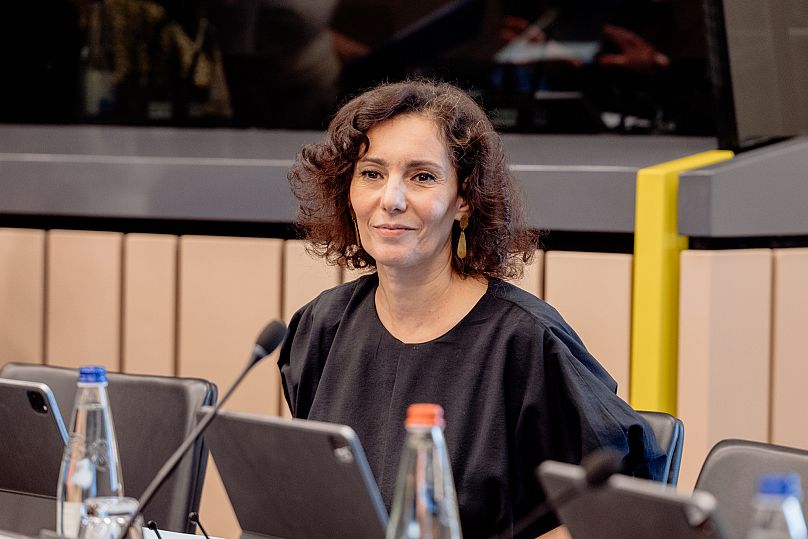
The EU is embracing a “better safe than sorry” approach in the post-COVID era, aiming to prevent the next major health crisis by strengthening its preparedness infrastructure.
How? By enhancing its ability to respond to a wide range of health threats through improved access to and availability of medical countermeasures at all times.
That’s the core of the new EU Medical Countermeasures Strategy, unveiled today in Strasbourg.
“Today, we are reinforcing Europe’s protective shield in a more unpredictable world. We are making preparedness our new way of life — the European way of life — to keep people safe, healthy and confident about the future,” said EU Commissioner for Preparedness Hadja Lahbib.
Medical countermeasures refer to essential tools such as vaccines, therapeutics, diagnostics, and personal protective equipment (PPE).
“It’s basically an arsenal of products that will allow us to protect citizens in case a health emergency emerges,” explained an EU official.
The COVID-19 pandemic exposed serious limitations in Europe’s ability to access and distribute these tools. In response, the new strategy proposes 17 key actions to ensure equitable and timely access across the EU. These actions follow an "end-to-end" approach — from threat surveillance to the final deployment of countermeasures.
“In the next crisis, what we want is to shorten that wait as much as possible,” said Lahbib.
What is Europe preparing for?
The strategy addresses a broad spectrum of potential health threats, from pandemic-prone respiratory and contact-based viruses such as COVID-19 to zoonoses like avian flu, as well as emerging and re-emerging diseases, such as Ebola.
The strategy also mentions the hypothetical "Disease X", a term created by the World Health Organisation (WHO) to represent a hypothetical, unknown pathogen that could one day cause a serious international epidemic or pandemic.
Vector-borne viruses like dengue and West Nile, transmitted by mosquitoes and ticks, are also considered, as well as antimicrobial resistance or AMR, often called the "silent pandemic", which causes 35,000 deaths in the EU annually.
Last but not least, the strategy includes security-related threats, including chemical attacks, and consequences of armed conflict, though not currently nuclear threats.
The challenges ahead

There are still significant hurdles. “Medical countermeasures are especially complex to stockpile. But to stockpile a vaccine or a treatment, it first needs to exist,” Lahbib said.
To address this, the Commission plans to accelerate the development of medical countermeasures. A major component of the strategy is the launch of a Medical Countermeasures Acceleration program — a one-stop shop to guide researchers and SMEs from early-stage research through to production.
The EU is also rolling out a flexible stockpiling strategy, adapted to specific risks. A recent example: during the 2024 Paris Olympic Games, the Commission authorised the pre-positioning of emergency medical kits, PPE, and portable detectors from the rescEU stockpiles.
“Such stocks can serve as a temporary boost to permanent national capacities, addressing the exceptional challenges posed by such events,” Lahbib noted.
Information first
Despite these advancements, a major challenge remains: information sharing.
“Every strategy needs a budget and, of course, preparedness doesn’t come for free, but the most important thing right now is better coordination,” Lahbib pointed out.
Currently, the EU lacks a comprehensive overview of which countries have what supplies, where the gaps are, and what’s missing.
Member states are often reluctant to share information on strategic stockpiles for national interest reasons. However, improved transparency is vital to avoid duplication and maximise efficiency.
As of now, only three countries — Czechia, Finland, and Estonia — are fully engaged in centralised EU stockpiling efforts, leaving the status of the remaining 24 member states unclear.







